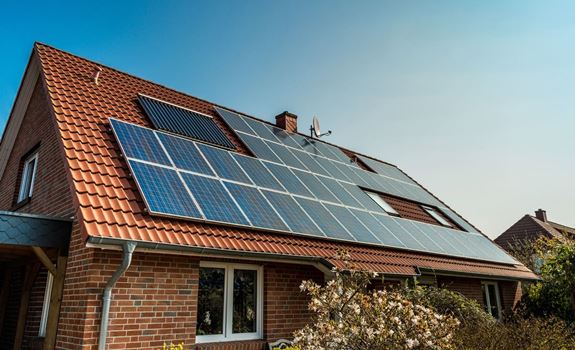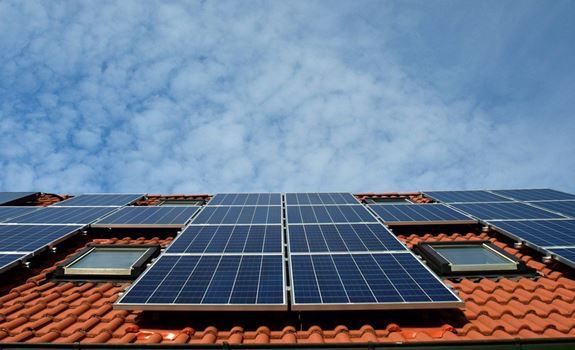With the installation of solar panels in your home, you need to invest in solar batteries. The solar batteries will store the energy absorbed from the sun for your later use. Therefore, the amount of stored energy available depends on the solar battery you acquire. This makes the selection process crucial; you want to purchase a battery that’ll serve you efficiently. This article will guide you appropriately on the selection process.
Understand Your Needs
It’d help to understand the needs relating to your energy usage. How much electricity do you consume on average? Consider identifying the amount of energy you consume per hour. You can get this information from your energy bills. Find four to five of your most recent electricity bills and get the average. Your electricity provider denotes it in kilowatts per hour (kWh). Are you going to use solar energy full time or occasionally?
By understanding your needs, you’ll know what solar battery feature to prioritize as you make a selection.
Look at the Power Rating
Power rating denotes the amount of energy you can utilize at a go. This has two aspects: the peak power rating and continuous power rating. Peak power rating refers to the maximum energy you can use for a short period. On the other hand, continuous power rating refers to the maximum amount of energy you can consume for a long time.
Your power rating choice depends on the type and number of appliances you’ll be powering up as you utilize the stored solar energy. If you are to power many appliances at a go, choose a battery with a high-power rating.
Consider the Battery Lifespan
A battery’s lifespan is the length of time it can serve you efficiently without reducing its capacity or performance levels.
The biggest determinant of a solar battery’s lifespan is its life cycle. Life cycles refer to the maximum number of times you can charge and discharge a battery, beyond which its performance reduces. Different solar batteries have varying life cycles, dependent on the battery’s quality, type, and design.
When it comes to your battery lifespan, select one with the highest number of cycles; these cycles can go as high as 5000 cycles.
Consider Battery Capacity
Battery capacity refers to the amount of energy it can hold when full. It’s denoted in kWh. The manufacturer will indicate the total capacity and the usable capacity. Total capacity is the amount it can hold while usable capacity is the maximum amount of the stored energy you can consume. Based on this, you need to pay attention to the usable capacity.
Your electricity usage will determine this choice; go for one with a higher kWh if you consume a lot. Most households will only need an average of nine to ten kWh. Alternatively, you can buy several small-capacity batteries instead of large ones.
Consider the Round Trip Efficiency
Round trip efficiency more or less refers to the usable capacity described above. The only difference is that the round trip efficiency is given as a percentage. It refers to the percentage of the stored energy you can utilize against the total it holds. Therefore, if a battery has a total capacity of 12 kWh and a usable capacity of 7 kWh, its round-trip efficiency will be 7/12 × 100. This is equivalent to 58%.
58% isn’t an efficient solar battery; select a battery with more than 80% round-trip efficiency. You want to use the biggest portion of the energy stored to reduce wastage. The battery’s operating system uses the remaining 20%.
Compare the Types of Solar Batteries Available
Solar systems can utilize various types of batteries to run. The types vary depending on their chemical composition.
The widely used battery type for solar units is lithium-ion. They’re preferred mainly because they require minimal maintenance and have a long-life cycle. Lithium-ion batteries can either be Nickel Manganese Cobalt (NMC) or Lithium Iron Phosphate (LFP). NMC will hold more charge between the two, and the LFP will last longer.
Solar batteries can also be made of lead-acid. Homeowners prefer this type if they are to occasionally utilize solar energy, maybe as a backup for a small period or for holiday homes. These batteries require no maintenance, and you can recycle them as many times as possible without reducing efficiency.
Sodium nickel chloride solar batteries are preferred if you live in an area with extremely high temperatures. Normally, some batteries can be sensitive to varying temperatures, leading to fire incidences when care isn’t taken. To avoid this, the sodium nickel chloride battery is preferred. Besides, you can also recycle them.
Your choice of solar battery, depending on the type, is mainly based on preference.
Consider Costs
More often than not, the cost of a solar battery will go hand in hand with its performance quality. Based on this, you shouldn’t base your selection purely on the initial cost. You need to consider costs you might incur in its life span, especially on maintenance. You might end up choosing a battery due to its low buying price, but along the line, you spend way more on repairs and maintenance. This doesn’t make it a viable investment for your home.
Consider basing your choice on the amount payable per kWh for the battery. Choose one with a lower rate. Select a solar battery at a reasonable price based on its performance features and maintenance needs after installation.
Look at the Brand
Different brands offer similar solar batteries, but there’s always a difference in the quality of the end product. This difference is attributed to varying production techniques and the quality of their constituents.
To be on the safe side, consider selecting a battery from a reputable brand. These brands are famous for a reason, often because of the longevity of their products. Usually, quality batteries will come at a high cost, but the cost is an aspect to forego in comparison to quality.
However, you still purchase a solar battery from any other brand that’s not commonly known. As you do this, be sure to buy from a manufacturer that has a warranty. The warranty should be long enough. This will show you that the manufacturer is willing to stand behind the quality of its products and will be of assistance if they fail. With this, you’re slightly assured of the quality you’re getting.
Conclusion
There are many aspects to consider as you choose the right solar battery for your home, as this article depicts. When selecting your preferred choice, it’s good to note that you should consider all aspects together. This is because when you focus only on one, you might end up foregoing other crucial characteristics that’ll later negatively impact your use of the battery. Implement the tips in this article, and you won’t go wrong in your selection.
Published in: Home advice | Author: Lynn










